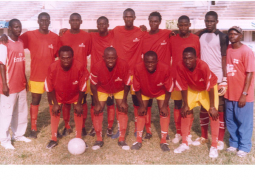Delivering his judgement, Chairman Jobarteh told the tribunal that the plaintiffs approached the tribunal on a last resort and asked for the following reliefs; the sum of D37,406.42 for six months’ notice for unlawful termination; the sum of D13,482 for the first plaintiff’s leave arrears for the period of seven years; damages in the sum of D200,000 for breach of contract; cost and interest at a rate of 25 per cent; any other order the tribunal may deem fit to make.
He stated that the evidence of the first and second plaintiffs, Babu Mendy and Ousman Camara, who testified as PW1 and PW2, established existence of contractual relationships between them and the defendant as per exhibit P1, the salary pay slip.
He said the first plaintiff put the commencement date of his employment to 1 September 1994, and claimed to have been asked to stop work in May 2013.
Chairman Jobarteh indicated that the first plaintiff testified that it was the plaintiff’s boss who asked him to leave the work and had asked the accountant, Mr Jarju, to pay him.
The plaintiff further stated that this was not done by the accountant as he had asked them to come back on a Friday because he needed to consult the Labour Department for advice, he said.
On the said Friday, Chairman Jobarteh posited, the first plaintiff told the tribunal that he came and was asked by the accountant to come back again and when he complied and came back on another day, Mr Jarju informed him and the second plaintiff that they were in consultation with the Department of Labour as to how much they should be paid.
Chairman Jobarteh stated that according to the plaintiffs, when they could not eventually derive any response from the defendant, they engaged the Department of Labour whose officials told them that the defendant had told them they were not terminated but redeployed to the warehouse.
Chairman Jobarteh said the first plaintiff told the tribunal that upon the receipt of the information, they returned to Mr Jarju and informed him of their inability to do the newly assigned work.
According to the first plaintiff, adduced Chairman Jobarteh, Mr Jarju finally told them to go and shoot themselves in their feet and go anywhere they liked.
Chairman Jobarteh stated that the first plaintiff told the tribunal that on 24 July 2012, one Mr Jammeh summoned them and revealed the offer of the defendant for three months payment to them each as compensation but on the condition that they had to write a resignation letter.
According to the first plaintiff, said chairman Jobarteh, the plaintiffs refused and told the defendant to instead write their termination letters since they were the ones who asked them to stop work.
Chairman Jobarteh indicated that the first plaintiff told the tribunal that he put the number of years he had worked for the defendant to 17 years 9 months and that throughout this long space of time, he had never gone on leave.
Chairman Jobarteh adduced that under cross-examination, the first plaintiff said they agreed to the termination on the condition that their salaries and the leave arrears would be paid, adding that the first plaintiff said he was not given a termination letter even though the defendant asked them to stop work.
The first plaintiff stated that he was offered a new position in the warehouse but refused it because he could no longer trust the defendant, said Chairman Jobarteh.
According to the second plaintiff, said Chairman Jobarteh, he was a gardener and narrated that on 31 May 2012, he went to the usual place and a person, Alhagie Ousman Colley, where he received his salary and was told that the January salary was not with him.
Chairman Jobarteh stated that the second plaintiff told the tribunal that the defendant told them to leave the employment because the place where they were working was being rented out to some other people who claimed they did not need their services.
The second plaintiff said Mr Colley asked him to come back on 4 July 2012, and instructed Mr Jarju to pay their redundancy allowance.
Chairman Jobarteh stated that under cross-examination, the second plaintiff stated that they had only spent thirty minutes at the warehouse where they were redeployed.
Still delivering his judgement, Chairman Jobarteh told the tribunal it was from this moment in the proceedings that the counsel for the defendant stalled the proceedings until the tribunal finally proceeded to judgement.
He said the decision of the tribunal to proceed to judgement upon application of the plaintiffs was sought to be arrested by the motion of the counsel for the defendant, adding that the motion, after being heard, was dismissed on 23 July 2013.
Chairman Jobarteh stated that having perused the evidence of the plaintiffs, as well as the full cross-examination of the first plaintiff and incomplete cross-examination of the second plaintiff and in the absence of the defence of the defendant, the tribunal was satisfied that the plaintiffs had proved their claims to both the redundancy notice and allowance.
He finally said: “The tribunal hereby orders: the defendant shall pay to the plaintiffs the sum equivalent to six months’ remuneration with all terminal benefits for the failure to give notice. The defendant shall pay to the plaintiffs the sum equivalent to six months’ remuneration as damages. The defendant shall pay the sum of D13,482 to the first plaintiff’s leave arrears for the period of seven years. Each plaintiff shall be paid cost of D10,000. The other reliefs are dismissed.”
Chairman Jobarteh was assisted by panelists Davies and Cole.
Garba Cham represented the plaintiffs.
Read Other Articles In Article (Archive)



